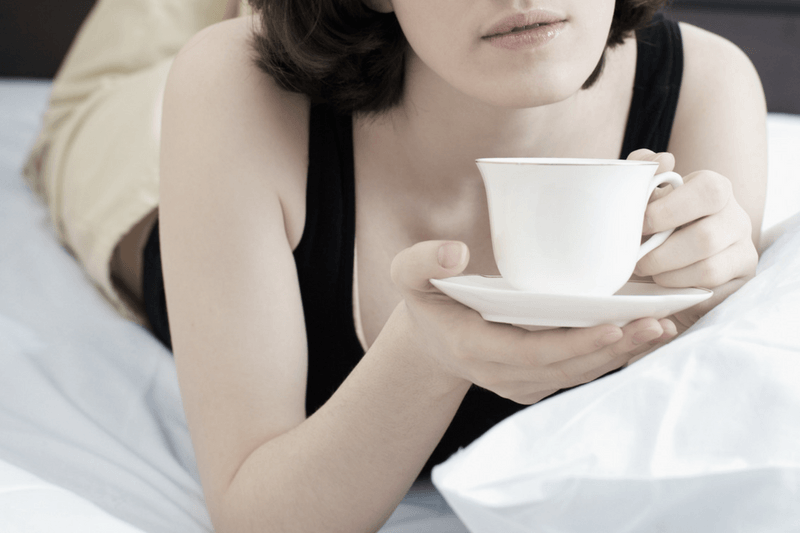So, you’re into your coffee and you have your own machine at home that gives you those beautiful cups of java that get you in a frame of mind each morning to ‘go get ‘em’.
But, do you consistently endure difficulty sleeping, and/or you have a disorder, such as obstructive sleep apnea (OSA),? If so, caffeine - not exclusive to coffee - might be doing you more harm than good.
What is Caffeine?
The US National Library of Medicine National Institutes of Health states that caffeine acts as a central nervous system stimulant.
It can be found naturally in more than 60 species of plants and is classified by the United States Food and Drugs Administration as not just a food additive, but a drug too.

How much caffeine is in my drink?
As you’ll probably be aware, the majority of us source caffeine through coffee, which followed not too far behind by tea, soft drinks and energy drinks too, the Institute for Scientific Information on Coffee reveal.
You might be taken aback by the volume of caffeine that’s in regularly consumed in our beverages.
For example, a 12 ounce Americano from Starbucks holds 150mg; brew a cup of coffee though and a 12 ounce cup suddenly contains a further 110mg of caffeine (260mg in total).
What about tea?
Tea isn’t quite as potent as far as the caffeine content goes. An 8 ounce cup of black tea that has been allowed to steep for roughly three minutes will contain about 30-80mg of caffeine, on average.
It’s really the sugar levels that are the concern with soft drinks as caffeine content is lower than tea and coffee, with a 12 ounce serving of Coke or Pepsi containing under 40mg of caffeine.
Now, turning to energy drinks, and we can see that there can be quite the caffeine bomb inside one of these cans!
For example, an 8.4 ounce Red Bull has 80mg but a can of 5-Hour Energy Extra Strength packs a whopping 242mg of caffeine, a Consumer Report found.

Does caffeine disturb my sleep?
Caffeine is a stimulant, this we know. The effects include raised alertness in brain and body, and the feeling of ‘being more awake and focused’.
While that hit of caffeine that gives you that the feelings we’ve just mentioned will wear off after a short period of time, caffeine can certainly remain in the body for far longer than that and can last for between four and six hours, caffeineinformer.com cites.
So, for average, healthy adults who consume 200mg of caffeine at 5pm to see you through the last part of work and the journey home without nodding off, you’ll still have something in the region of 100mg active in your body at 11pm!
Subsequently, it goes without saying that the effects of having caffeine lingering in the system are likely to interrupt your sound slumber from happening.

How much is too much caffeine?
There’s no definitive, set in stone answer to this query. This one depends on a host of factors including, but not exclusively:
However, a study published in the peer-reviewed journal Food and Chemical Toxicology backs up the claim that 400mg of caffeine a day seems to be safe for most healthy adults.
Exceed the 400mg mark and get up around the 500mg mark though and average people will begin to experience side effects such as restlessness, irritability and insomnia.
None of those symptoms equates to positive results as far as high-quality sleep is concerned!
What about decaffeinated coffee?
Did you know that it’s a myth that decaffeinated coffee does not have caffeine? You can still find low levels of caffeine – roughly between one and five mg – in coffee.
However, you can still get over 20mg in some decaf coffees, Bruce Goldberger, Ph.D., a professor and director of UF's William R. Maples Center for Forensic Medicine said following research he was involved with.

So, does caffeine affect sleep apnea?
According to research on whether sleep apnea can, in fact, kill you, it was found that in excess of twenty-eight million residents in the US live with OSA, with an overwhelming 80% not even aware of this fact!
Turning to the correlation with caffeine & sleep apnea!
One study revealed that the caffeine in soda-based caffeinated drinks was associated with more severe sleep-disordered breathing, such as OSA.
However, the consumption of tea and coffee did not appear to be linked with more stark sleep-disordered breathing.
The Journal of Caffeine Research conducted a study in 2014 that found no correlation between caffeine consumption and either risk factors or consequences of OSA.
Therefore, there was a positive correlation between caffeine consumption and severity of OSA upon adjustment for somnolence.
Final Thoughts
A negative correlation between sleepiness and caffeine consumption was also found. In conclusion, the present study suggests that caffeine consumption is not associated with the development of OSA, but may have a correlation with the associated sleepiness and severity of the syndrome.
About the Author: When I’m not educating myself on sleep-based topics, I’ll be found spending time in yoga classes and rock climbing. I enjoy learning and coming up with new ways to develop my writing so that I can help others to grow and learn too.
I have a keen passion for creating stained-glass ornaments too. Also, I find that this helps my mind to relax and improves my outlook on life. I’m a strong advocate of promoting sleep and how it can make the difference between living a healthy, fulfilled life and one that does not reach these enjoyable levels.




